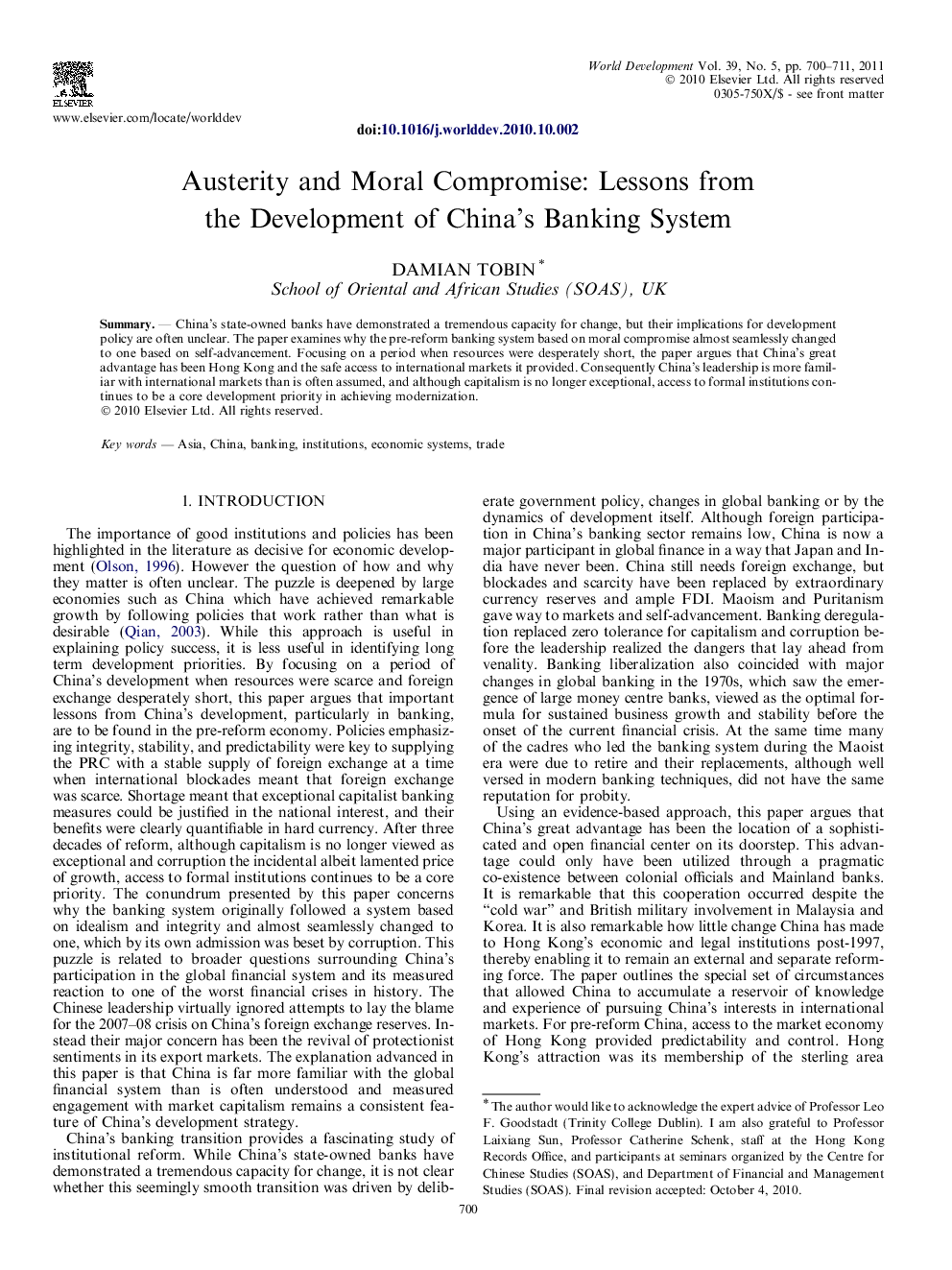| Article ID | Journal | Published Year | Pages | File Type |
|---|---|---|---|---|
| 992370 | World Development | 2011 | 12 Pages |
Abstract
SummaryChina’s state-owned banks have demonstrated a tremendous capacity for change, but their implications for development policy are often unclear. The paper examines why the pre-reform banking system based on moral compromise almost seamlessly changed to one based on self-advancement. Focusing on a period when resources were desperately short, the paper argues that China’s great advantage has been Hong Kong and the safe access to international markets it provided. Consequently China’s leadership is more familiar with international markets than is often assumed, and although capitalism is no longer exceptional, access to formal institutions continues to be a core development priority in achieving modernization.
Related Topics
Social Sciences and Humanities
Economics, Econometrics and Finance
Economics and Econometrics
Authors
Damian Tobin,
